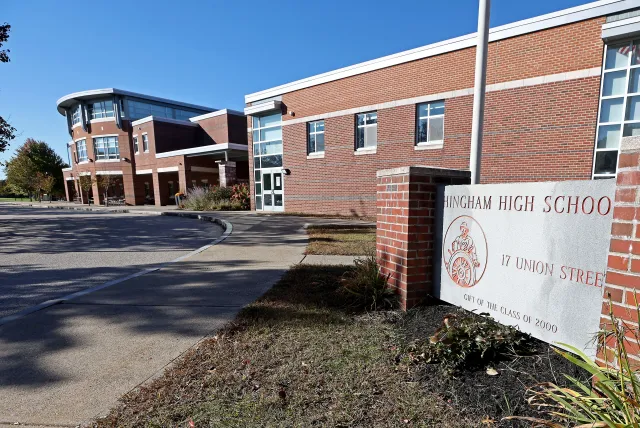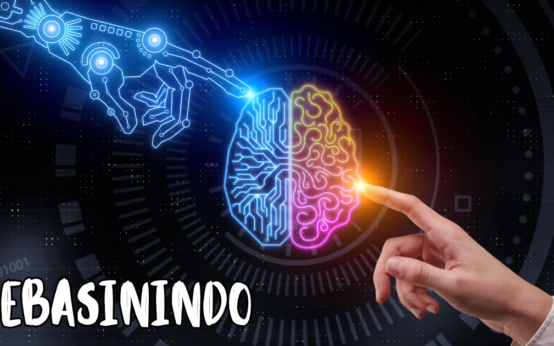Introduction to the Hingham High School AI Lawsuit
The world of education is at a crossroads, and a recent lawsuit from Hingham High School has sparked intense debate. As technology continues to evolve, so does its integration into the classroom. This landmark case raises critical questions about the role of artificial intelligence in shaping our educational systems. What happens when cutting-edge tech meets traditional learning? And what are the implications for students, educators, and institutions alike? Dive into this unfolding story that could redefine how we approach AI in schools across the nation.
Table of Contents
The Use of Artificial Intelligence in Education
Artificial intelligence is transforming the educational landscape in unprecedented ways. From personalized learning experiences to enhanced administrative efficiency, AI’s applications are vast and varied.
One notable use of AI is adaptive learning platforms. These systems analyze student performance in real-time, tailoring content to meet individual needs. As a result, learners can progress at their own pace while receiving targeted support.
AI also streamlines administrative tasks for educators. Grading assignments and managing schedules becomes less burdensome when automated tools take over repetitive duties. This allows teachers to focus more on instruction than paperwork.
Moreover, predictive analytics help institutions identify students at risk of falling behind. Early intervention strategies can be implemented based on data insights, potentially improving academic outcomes significantly.
While the potential benefits are impressive, ethical considerations loom large as we integrate such technology into classrooms. The balance between innovation and responsibility remains a critical discussion point among educators and policymakers alike.
The Allegations Made Against Hingham High School
The Hingham High School AI lawsuit has raised serious allegations against the institution. Critics claim that the AI system used within the school compromises student privacy.
Parents are particularly concerned about data collection practices. They argue that sensitive information could be misused or inadequately protected.
Another significant allegation revolves around bias in decision-making processes. Some assert that the AI tools may favor certain demographics over others, affecting grades and opportunities unfairly.
Additionally, there are claims regarding a lack of transparency in how these algorithms operate. Many feel left in the dark about decisions made by an unseen entity impacting their children’s future.
These accusations have sparked heated debates among educators, parents, and technology advocates alike. The implications for educational equity and ethics are profound as this case unfolds.
Background on the Use of Artificial Intelligence in Education
Artificial intelligence has made significant inroads into education over the past decade. Schools and universities are increasingly adopting AI tools to enhance learning experiences.
From personalized tutoring systems that adapt to student needs, to chatbots that assist with administrative tasks, the applications are vast. These technologies aim to optimize educational outcomes by providing tailored support.
AI can analyze large amounts of data quickly, helping educators identify at-risk students or evaluate teaching methods. This capability not only aids teachers but also empowers students by offering them resources customized for their learning styles.
However, this rapid integration raises questions about ethics and privacy. Balancing innovation with responsibility is crucial as we navigate this evolving landscape in education. The implications of these technologies extend beyond classrooms, impacting how society views knowledge acquisition and accessibility.
The Controversy Surrounding the Hingham High School AI System
The Hingham High School AI system has sparked significant debate among educators, parents, and students. Critics argue that the technology encroaches on privacy rights. Concerns about data security loom large.
Some believe the AI’s ability to analyze student performance can lead to unfair profiling or tracking. This raises ethical questions about consent and surveillance in learning environments.
On the flip side, proponents highlight its potential for personalized education. They argue that tailored learning experiences could enhance student outcomes significantly. Yet, these advantages come with complexities.
Discussions around transparency are also crucial. Stakeholders want clarity on how data is collected and used within this framework. The balance between innovation and safeguarding individual rights remains a central theme in this ongoing controversy.
Arguments for and Against the Use of AI in Education
Proponents of AI in education argue that it enhances personalized learning. Students can receive tailored content, catering to their specific needs and pace.
AI can also streamline administrative tasks. This allows educators to focus more on teaching rather than paperwork.
However, critics raise concerns about data privacy. They worry that sensitive student information could be mishandled or exploited by third parties.
There’s also the fear of over-reliance on technology. Some believe that excessive use of AI might diminish critical thinking and problem-solving skills among students.
Moreover, equity is a significant issue. Access to AI tools may not be uniform across different socio-economic backgrounds, potentially widening the educational gap.
Such arguments continue to fuel debates about making informed decisions regarding AI’s role in classrooms. Balancing innovation with ethical considerations remains crucial as schools navigate this complex landscape.
The Future of AI in Education
The future of AI in education is both exciting and uncertain. As technology evolves, so do the possibilities for personalized learning experiences.
Imagine classrooms where each student receives tailored instruction based on real-time data analysis. AI can help identify strengths and weaknesses, allowing teachers to focus their efforts more effectively.
However, this potential comes with challenges. Concerns over data privacy and algorithmic bias are paramount as schools consider integrating these advanced systems.
Moreover, educators must adapt to new tools while maintaining meaningful human interactions in the classroom. Balancing tech-enhanced learning with traditional methods will be crucial.
As we look ahead, collaboration between technologists and educators will shape how AI is utilized. It’s essential to create frameworks that ensure ethical applications of this technology for all students. The road forward may be complex, but it holds promise for enriching educational landscapes across the globe.
Future Implications and Considerations for AI in Education
The future of AI in education holds immense potential but also presents numerous challenges. As technology advances, educators must consider how to integrate AI solutions responsibly.
Privacy concerns will be paramount. Schools need robust data protection measures to safeguard student information from misuse. Transparency about how AI systems operate is equally essential.
Equity in access cannot be overlooked either. Disparities between affluent and under-resourced schools may widen without thoughtful implementation strategies.
Moreover, teacher training plays a crucial role in this evolution. Educators should feel empowered to utilize these tools effectively while maintaining their vital human touch.
As we explore new possibilities with AI, ethical frameworks will guide development and deployment decisions, ensuring that innovations enhance learning experiences for all students rather than detract from them.
Impact of the Lawsuit on Education Systems Nationwide
The Hingham High School AI lawsuit has sparked conversations across the nation. Schools everywhere are now scrutinizing their own use of artificial intelligence.
As districts evaluate their systems, concerns about privacy and data security come to the forefront. Educators are questioning how AI impacts student learning and emotional well-being.
This case could set a precedent for future litigation regarding educational technology. Legal experts suggest that similar lawsuits may emerge in other states as parents demand accountability from schools.
Moreover, policymakers may feel pressured to draft regulations governing AI use in education. The balance between innovation and ethical responsibility is becoming more critical than ever.
Schools might also reconsider partnerships with tech companies developing such tools. This scrutiny can lead to cautious implementations or innovative changes that prioritize transparency and inclusivity.
Conclusion: Balancing Technology and Ethics in Schools
The Hingham High School AI lawsuit raises significant questions about the intersection of technology and ethics in educational settings. As schools increasingly integrate artificial intelligence into their curricula, the need for responsible implementation cannot be overstated. This case serves as a critical reminder that while AI can enhance learning experiences, it must be used thoughtfully.
Balancing innovation with ethical considerations is essential. Educational institutions must prioritize student privacy and ensure transparent data usage policies. Moreover, fostering an environment that encourages open dialogue among educators, students, parents, and stakeholders about the implications of AI will strengthen community trust.
Looking ahead, this landmark case may set precedents for how similar lawsuits are handled across the nation. Schools must remain vigilant in addressing concerns associated with digital tools while harnessing their potential to enrich education. The journey towards integrating AI responsibly has just begun; striking a balance between embracing technology and upholding ethical standards is vital for future generations’ success in learning environments.


 Beholderen: A New Perspective on Art and Design
Beholderen: A New Perspective on Art and Design  Anthony Palatty Koonathan: A Legacy of Leadership and Service
Anthony Palatty Koonathan: A Legacy of Leadership and Service  Montecito Country Club Easement Dispute: Key Details Explained
Montecito Country Club Easement Dispute: Key Details Explained  Bebasinindo: Dive Into Indonesia Favorite Streaming Hub
Bebasinindo: Dive Into Indonesia Favorite Streaming Hub  Amanollah Sharaf: Achievements and Contributions Unveiled
Amanollah Sharaf: Achievements and Contributions Unveiled  Timtum Halev Firewood: Keeping Warm with Quality Wood
Timtum Halev Firewood: Keeping Warm with Quality Wood